Burundi elections: Timeline of political crisis that rocked the east Africa nation
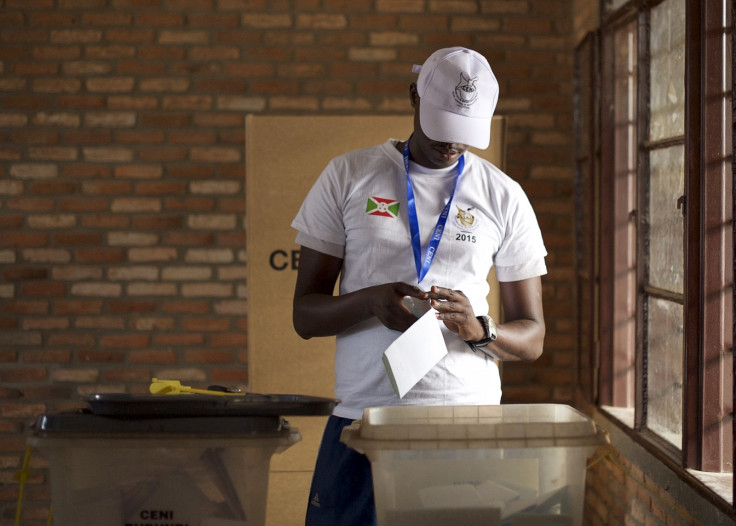
October 1993: Tutsi soldiers assassinate President Melchior Ndadaye, the first Hutu president. The assassination plunges Burundi into a war opposing Hutu rebels - who went on to form the ruling CNDD-FDD party - and the Tutsi-dominated army. It leaves more than 300,000 people dead.
28 August 2000: Government and three Tutsi groups sign a ceasefire accord, the Arusha Peace and Reconciliation Agreement for Burundi - known as the Arusha Accords.
2000-2005 Transitional government
October 2001: Talks brokered by South African President Nelson Mandela lead to the establishment of a transitional government. A number of Hutu rebel groups refuse to sign.
November 2003: President Ndayizeye and Pierre Nkurunziza, the leader of the Hutu rebel group Forces for Defence of Democracy (FDD), sign an agreement to end the civil war at a summit of African leaders in Tanzania. The Hutu rebel group, Forces for National Liberation (FNL), remains active.
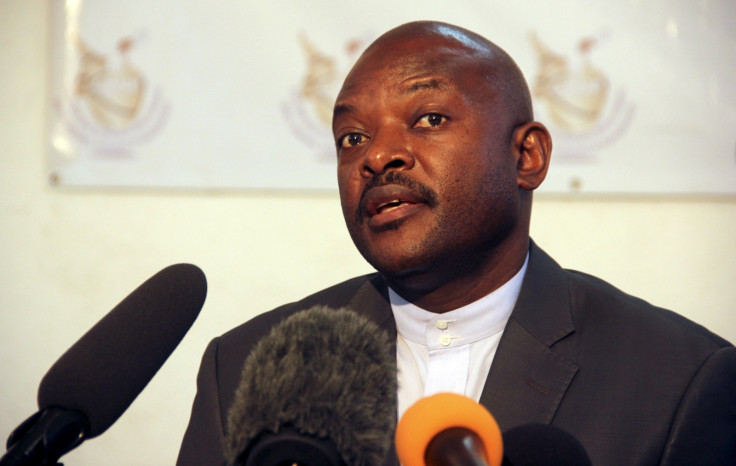
January 2005: President Domitien Ndayizeye, a Hutu, signs a law to set up new national army, incorporating government forces. The FNL is not incorporated.
2005-2015 Nkurunziza's presidency
August 2005: Pierre Nkurunziza is elected as president by the two houses of parliament.
September 2006: The FNL and the government sign a ceasefire at talks in Tanzania.
April 2008: Former head of the CNDD-FDD, Hussein Radjabu, is sentenced to 13 years in prison after he was accused of plotting an armed rebellion and insulting President Nkurunziza.
May 2008: After deadly fighting, Burundi's government and FNL rebels sign a ceasefire. Rebel leader Agathon Rwasa returns home from exile in Tanzania.
April 2009: Former rebel Godefroid Niyombare becomes the first ever Hutu chief of general staff of the army.
June 2010: Nkurunziza is re-elected in an uncontested poll after the main opposition parties boycott the vote and parliamentary polls. A new civil opposition group, the Alliance of Democrats for Change (ADC-Ikibiri) is set up and Rwasa goes into hiding.
August 2013: Rwasa reappears and announces he will stand in the 2015 presidential election.
June 2014: Nkurunziza hints that he might seek a third term.
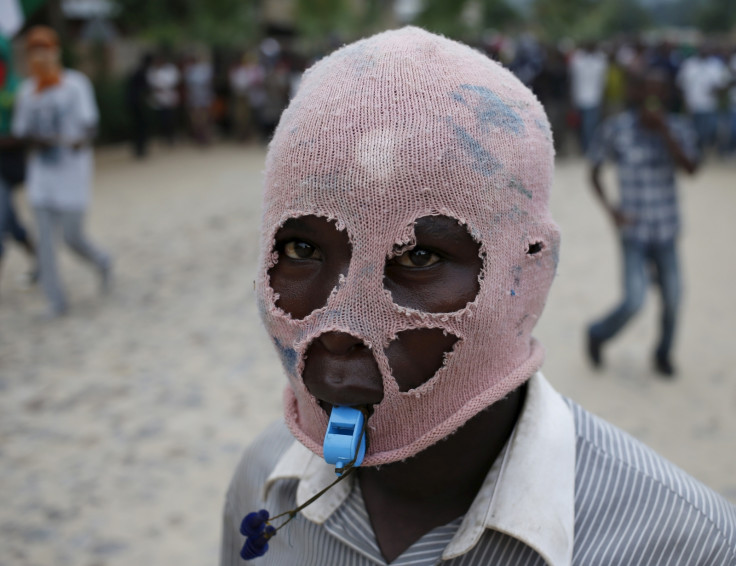
26 April 2015: The ruling party CNDD-FDD announced its candidate, Nkurunziza, will run for a third term. Violence spills into the streets as protesters rally against the third term. Protesters defy a national ban on protests.
5 May 2015: The Constitutional Court rules in favour of Nkurunziza's decision to stand for a third term. The decision comes a day after Judge Sylvere Nimpagaritse, the vice-president of the Constitutional Court, fled the country rather than approve the president's candidacy.
6 May 2015: Opposition leaders hint that Burundi's military may be planning to overthrow Nkurunziza.
8 May 2015: Burundi's opposition calls on the European Union to suspend €8m of financial assistance to the contested elections. Meanwhile, The United Nation's Security Council receives a file containing the details of the alleged assassinations of 22 figures of the Burundian opposition.
11 May 2015: Belgium suspends its assistance to the electoral process in Burundi.
13 May 2015: Reports emerge of police firing live bullets at protesters. A coup d'etat is announced in a radio broadcast, with senior army generals saying they were deposing embattled Nkurunziza, who is travelling to Tanzania to meet leaders of the East Africa Community - made up of Kenya, Rwanda, Tanzania, Uganda and Burundi - to discuss the violence rocking the country.
Later that day, Nkurunziza denies the coup and vows to hunt down the army generals behind takeover - including the Major General Godefroid Niyombare.
14 May 2015: After calling in reinforcements, the army tries to re-take "by force" two state institutions still in the hands of the government including the presidential palace and main radio station RTNB. Nkurunziza returns to Burundi and declares the coup bid failed.
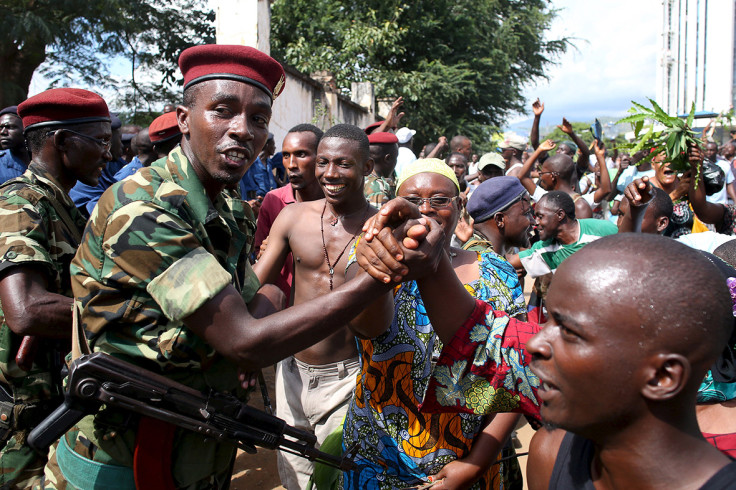
18 May 2015: Protests resume, as the army tells protesters 'You march, we shoot'. Nkurunziza sacks ministers in government reshuffle.
31 May 2015: Leaders of the East African Community call on the government in Bujumbura to postpone the election.
3 June 2015: The United States urges Nkurunziza to adhere to the Arusha Accords by stepping down.
8 June 2015: The electoral commission (CENI) announces the presidential elections will be postponed until 15 July and parliamentary polls until 29 June.
22 June 2015: The European Union threatens government with 'targeted measures' amid rising violence.
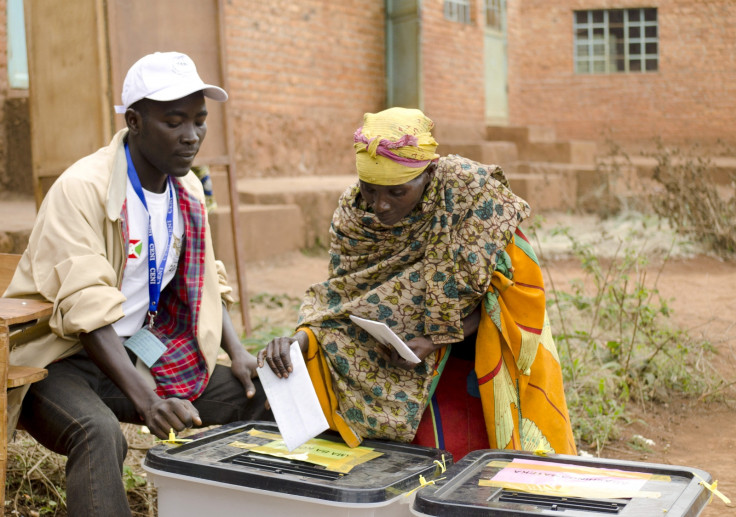
25 June 2015: The second vice-President Gervais Rufyikiri, of the CNDD-FDD, flees the country after opposing Nkurunziza's plans for a third term.
29 June 2015: The opposition boycotts the parliamentary elections, which are marred by grenade attacks at polling stations. The ruling party announces its victory. The United Nations says the elections were not free or credible.
10 July 2015: A group of armed rebels attacks army positions in the north-western region of the country as coup leaders claim responsibility for the attack.
15 July 2015: Uganda president Yoweri Museve leads crisis talks between the government and members of the opposition.
17 July 2015: The government confirms the controversial elections will be held on 21 July.
20 July 2015: The Ugandan mediator, the Minister of Defense Crispus Kiyonga, leaves Burundi and postpones the dialogue between all parties after he claims the government failed to turn up at the negotiation table.
© Copyright IBTimes 2024. All rights reserved.






